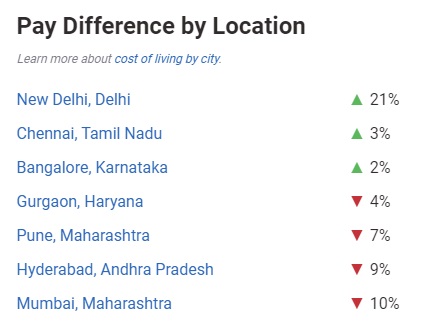
An industrial manager is an engineer who integrates different engineering processes to create an efficient management system. The industrial manager helps integrate all engineering processes into a single integrated management system. Here are some details about the job. Here are the requirements and benefits of becoming an industrial manager. This career is for you if your qualifications are up-to-date and you're looking for a rewarding and challenging job. Continue reading to learn more.
Job description
An industrial manager oversees manufacturing and the production of goods or services. The job can cover every aspect of the production process but will also be responsible for sourcing raw materials and implementing equipment. Industrial production managers should be computer-literate as computers are becoming increasingly important in the coordination of departments, suppliers, vendors, and clients. Industrial production managers should also be conversant in the most recent production technologies and management procedures. Many managers attend conferences and trade shows in the industry and also take courses to attain certification.
Industrial managers coordinate the activities in various departments within an organization, and they also oversee manufacturing processes. They make sure production lines run smoothly and meet customers' time and quality requirements. They oversee staffing levels and alter production levels when necessary to reduce inventory. They may also oversee quality control programs and coordinate communication with suppliers and other departments. Most of this job involves managing people. This includes training, motivating, and identifying employees.
Education Required
A bachelor's degree is not required to be an industrial manager. Employers will prefer candidates who have a background in one or more of these fields. Additionally, industrial managers need to be computer literate. Computers are increasingly becoming a crucial part of the manufacturing process, helping coordinate production across departments, suppliers, and clients. Interested individuals should obtain the proper education and experience to excel in this field.
Many industrial production manager begin their careers in production and move on to higher-ranking supervisory roles. A college degree in business administration is required to advance to an industrial management position. However, some entry-level workers may be able to gain this education on the job, or they may choose to take classes sponsored by their companies. However, most managers are expected to have two to five years of relevant experience before becoming a manager.
Your potential to earn

The industrial managers are responsible for overseeing the smooth running of manufacturing plants. They determine the best way to use employees and equipment, set production standards and make strategic choices. These workers are responsible for the hiring and evaluation of workers, as well as setting production schedules and following safety procedures. They monitor and evaluate the daily activities of a worker team.
The experience and employer of an industrial production manager will determine the potential earnings. Although it's impossible to predict the future earnings of industrial producers, the average salary was $103,380 in May 2016, with the highest-paid earning industrial production managers earning $172,000. Higher earnings may also be available for industrial production managers who have completed advanced training or certification. According to the U.S. Bureau of Labor Statistics (USBoLS), industrial production managers who hold a bachelor's or higher degree in manufacturing management may earn more.
Work environment
An industrial production manager splits time between the office and the production floor, sometimes in the same place. When they work in a production zone, industrial production managers need to adhere to safety and health guidelines and use appropriate protective equipment. They spend significant time in meetings with their subordinates, as well as analyzing production data. Reports may be written by these managers. A manager of industrial production often works in a dynamic environment.

The industrial production manager is an important part of a company's management structure. They must coordinate the activities of various workers and increase productivity. A manager of industrial production is responsible for increasing productivity and safety. Because of corporate restructuring, many levels of management have been eliminated and support staff have been reduced, leaving more of the workload to production managers. This is a serious challenge for any manager and can make the job of a production manager difficult.
FAQ
What skills are required to be a production manager?
A production planner must be organized, flexible, and able multitask to succeed. Effective communication with clients and colleagues is essential.
What are manufacturing and logistics?
Manufacturing refers to the process of making goods using raw materials and machines. Logistics manages all aspects of the supply chain, including procurement, production planning and distribution, inventory control, transportation, customer service, and transport. Logistics and manufacturing are often referred to as one thing. It encompasses both the creation of products and their delivery to customers.
What is the job of a manufacturer manager?
A manufacturing manager must make sure that all manufacturing processes run smoothly and effectively. They should also be aware of any problems within the company and act accordingly.
They must also be able to communicate with sales and marketing departments.
They should be informed about industry trends and be able make use of this information to improve their productivity and efficiency.
Statistics
- (2:04) MTO is a production technique wherein products are customized according to customer specifications, and production only starts after an order is received. (oracle.com)
- You can multiply the result by 100 to get the total percent of monthly overhead. (investopedia.com)
- According to a Statista study, U.S. businesses spent $1.63 trillion on logistics in 2019, moving goods from origin to end user through various supply chain network segments. (netsuite.com)
- [54][55] These are the top 50 countries by the total value of manufacturing output in US dollars for its noted year according to World Bank.[56] (en.wikipedia.org)
- Many factories witnessed a 30% increase in output due to the shift to electric motors. (en.wikipedia.org)
External Links
How To
How to use 5S in Manufacturing to Increase Productivity
5S stands for "Sort", "Set In Order", "Standardize", "Separate" and "Store". Toyota Motor Corporation invented the 5S strategy in 1954. It improves the work environment and helps companies to achieve greater efficiency.
This method aims to standardize production processes so that they are repeatable, measurable and predictable. This means that daily tasks such as cleaning and sorting, storage, packing, labeling, and packaging are possible. Through these actions, workers can perform their jobs more efficiently because they know what to expect from them.
Implementing 5S requires five steps. These are Sort, Set In Order, Standardize. Separate. And Store. Each step requires a different action to increase efficiency. For example, when you sort things, you make them easy to find later. Once you have placed items in an ordered fashion, you will put them together. Next, organize your inventory into categories and store them in containers that are easily accessible. You can also label your containers to ensure everything is properly labeled.
Employees must be able to critically examine their work practices. Employees need to be able understand their motivations and discover alternative ways to do them. To implement the 5S system, employees must acquire new skills and techniques.
In addition to improving efficiency, the 5S system also increases morale and teamwork among employees. They will feel motivated to strive for higher levels of efficiency once they start to see results.